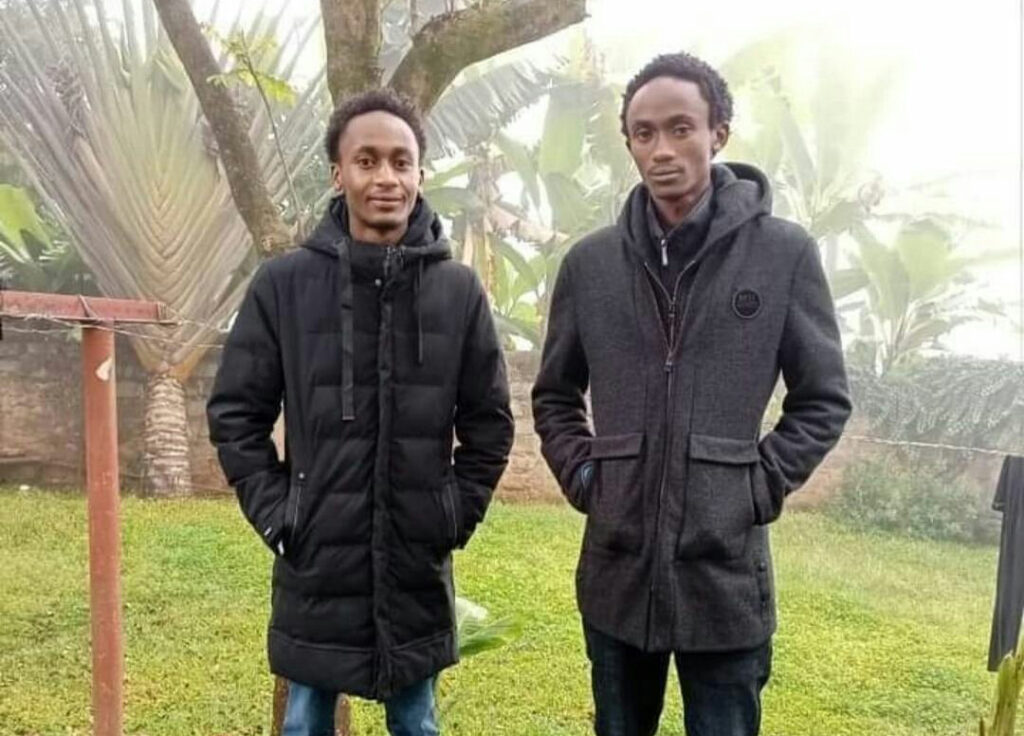ADF STAFF
Benson Njiru Ndwiga, 22, and Emmanuel Marura Ndwiga, 19, had just opened a butchery business with their father in Kianjokoma in Embu County a couple of days before the Kenyan brothers went missing.
That day, August 1, was good for sales. They worked late at the market but were arrested by police for violating the country’s 10 p.m. COVID-19 curfew.
Relatives found their bodies in a morgue two days later.
Protests erupted in Embu. Police fired live rounds to disperse crowds, killing one.
Kenyans are in a COVID-19 uproar, but their vitriol is not over the virus or the government’s lockdown as much as it is directed toward police enforcement of the restrictions.
The deaths of the brothers, which resulted in murder charges for six police officers, have galvanized the public to join activists and government officials in demanding reform.
“The case is one among many that has shocked the conscience of the nation and exposed the extent of police brutality in Kenya,” Executive Director of Amnesty International Kenya Irũngũ Houghton told ADF. “Police custody and stations cannot be spaces for extortion, torture, and violence, and police officers must not become executioners.”
British colonial forces established the Kenya Police Service in 1907. Laws such as the Public Order Act also date back to the colonial period and, today, still empower police to arrest people for loitering, vagrancy or spontaneously protesting.
On March 27, 2020, to halt the spread of COVID-19, Kenya used the Public Order Act and police were tasked with enforcing lockdown restrictions in major cities along with a dusk-to-dawn curfew.
The first 10 days of the curfew saw at least six people die at the hands of police officers, according to international nongovernmental organization Human Rights Watch.
“The police, without apparent justification, shot and beat people at markets or returning home from work, even before the daily start of the curfew,” the organization reported on its website.
President Uhuru Kenyatta addressed the issue four days later in Nairobi.
“I want to apologize to all Kenyans,” he said,” for … some excesses that were conducted.”
Kenya has adopted reforms, including the 2011 creation of the Independent Policing Oversight Authority (IPOA) to investigate all deaths in which police have used force.
Some officials have blamed poor conditions and low wages, while others have focused on training methods.
“Some of these policemen are very young,” police spokesperson Charles Owino said in a televised interview in June 2020. “They can easily get drunk with the little power they have.”
Amnesty International Kenya recorded 166 deaths by police in 2020, at least 15 of which were related to COVID-19 lockdown orders.
Those numbers continue to rise: 103 people were killed by police from January to August 2021, according to Missing Voices, a coalition of organizations aligned to document extrajudicial killings and address the issue.
The IPOA received 1,324 complaints through June this year.
Activists have called the accusations of police misconduct “a twin pandemic” along with COVID-19.
Kenyatta has called for unity and demanded answers in the case of the Ndwiga brothers.
An investigation by police internal affairs and another by the IPOA indicated that three officers rode in the back of the police vehicle with the brothers along with eight others also arrested for breaking curfew.
The accused officers claim the brothers died when they jumped from the moving vehicle, but the family says autopsy evidence proves otherwise.
Amnesty International’s Houghton praised the swiftness of the investigations and pushed for the IPOA to continue handling claims of human rights violations.
He doesn’t question the viability of COVID-19 restrictions. His focus is on accountability.
“Lockdowns are a useful tool to fight the spread of coronavirus and have worked in most places in the world,” he said. “The problem is a lack of adherence to constitutional and statutory provisions on the use of force and firearms. We must have zero tolerance for officers who brutalize civilians for misdemeanors such as being out during curfew and not wearing masks.
“Accountability requires that any police officers who break the law are investigated and prosecuted, and IPOA is a central part of this.”

